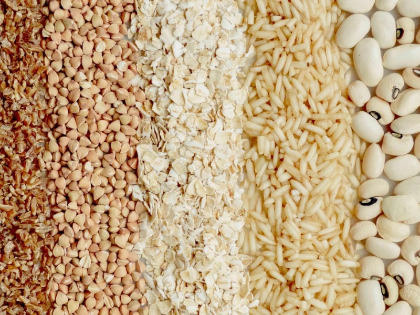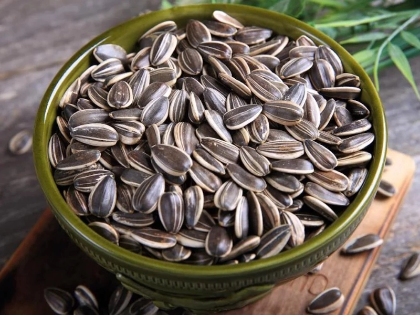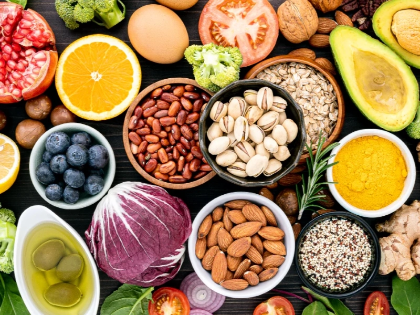How Pineapple Can Help Balance Your Body's pH Levels
1. Understanding Hormone Balance in Women

2. The Importance of Vitamin C

Crucially important for many body processes, vitamin C—also known as ascorbic acid—is water-soluble. Mostly known for its immune-boosting qualities, vitamin C is involved in collagen formation, wound healing, iron absorption from plant-based meals. Its antioxidant qualities shield cells from oxidative damage, therefore influencing hormone production and control. Maintaining appropriate vitamin C levels is essential for women sustaining hormone homeostasis at several phases of life.
3. Vitamin C and Adrenal Health

Hormones, including cortisol, which lets the body handle stress, are produced by the adrenal glands. Adrenal exhaustion brought on by persistent stress might throw off hormone balance. Because it controls cortisol levels, vitamin C is vital for adrenal function. Studies show that enough vitamin C helps reduce cortisol levels, therefore helping the body to more successfully control stress. Support of adrenal function helps vitamin C preserve balanced hormone levels, which is essential for general health.
4. The Role of Vitamin C in Estrogen Metabolism

Key for women's health, oestrogen influences everything including menstrual cycles and bone density. Oestrogen levels that are off might cause menopausal symptoms and premenstrual syndrome (PMS) among other health issues. Through helping to convert oestrogen into its active forms, vitamin C is essential for oestrogen metabolism. This procedure helps to preserve normal oestrogen levels, so possibly reducing symptoms related to hormonal imbalances. Ensuring enough vitamin C consumption can help to support ideal oestrogen metabolism and general hormonal balance.
5. Vitamin C and Progesterone Production
The menstrual cycle is governed and the uterus is ready for possible pregnancy by progesterone. Reduced progesterone can cause irregular cycles and problems with conception. Because it supports ovarian activity, vitamin C is vital for the synthesis of progesterone. Higher vitamin C levels have been linked in studies to improved progesterone generation, therefore promoting a more balanced hormonal state.
6. Antioxidant Properties and Hormonal Health
For hormonal balance especially, vitamin C's antioxidant qualities are quite helpful. Oxidative stress can throw off hormone synthesis and cause abnormalities. Vitamin C guards hormone-producing organs including the ovaries and adrenal glands by neutralising free radicals. Maintaining normal hormone levels and avoiding disorders linked with oxidative stress, such thyroid dysfunction and polycystic ovarian syndrome (PCOS), depend on this protection. Including foods high in vitamin C helps the body fight oxidative stress and support hormonal equilibrium.
7. Dietary Sources of Vitamin C
Including a range of foods high in vitamin C can help you to get the advantages for hormone balance. Although many other fruits and vegetables are equally heavy in this vitamin, citrus fruits such oranges and grapefruits are well-known sources. Good selections are berries, kiwi, bell peppers, broccoli, and tomatoes. If you want best absorption, try to eat these items raw and fresh whenever you can. A rainbow of fruits and vegetables will make sure you get enough vitamin C.
8. Supplementing with Vitamin C
Although eating foods high in vitamin C is the best way to get it, some people could find benefit from supplements particularly if their dietary intake falls short of their needs. Widely available and able to maintain hormone balance are vitamin C pills. Before beginning any supplement program, though, you should see a healthcare provider to ascertain the proper dosage and make sure it fits your particular medical condition.
9. Lifestyle Factors Affecting Hormone Balance
Apart from eating, several elements of lifestyle might affect hormone balance. Maintaining hormonal health depends critically on stress management, consistent exercise, and enough sleep. Along with good living habits, including foods high in vitamin C into a balanced diet will help to build an atmosphere favourable for hormone balance. Yoga and meditation among other mindfulness techniques can help lower stress and hence support hormonal well-being.
10. Summary of Vitamin C’s Role in Hormone Balance
All things considered, maintaining hormone balance in women depends on vitamin C. Essential for preserving hormonal balance, its antioxidant qualities, support of adrenal and ovarian health, and participation in oestrogen and progesterone metabolism help You can improve your hormonal balance and general well-being by changing your lifestyle and introducing foods high in vitamin C into your diet. Giving this vital vitamin top priority will help women at different phases of life by raising energy levels, mood stability, and reproductive health.








